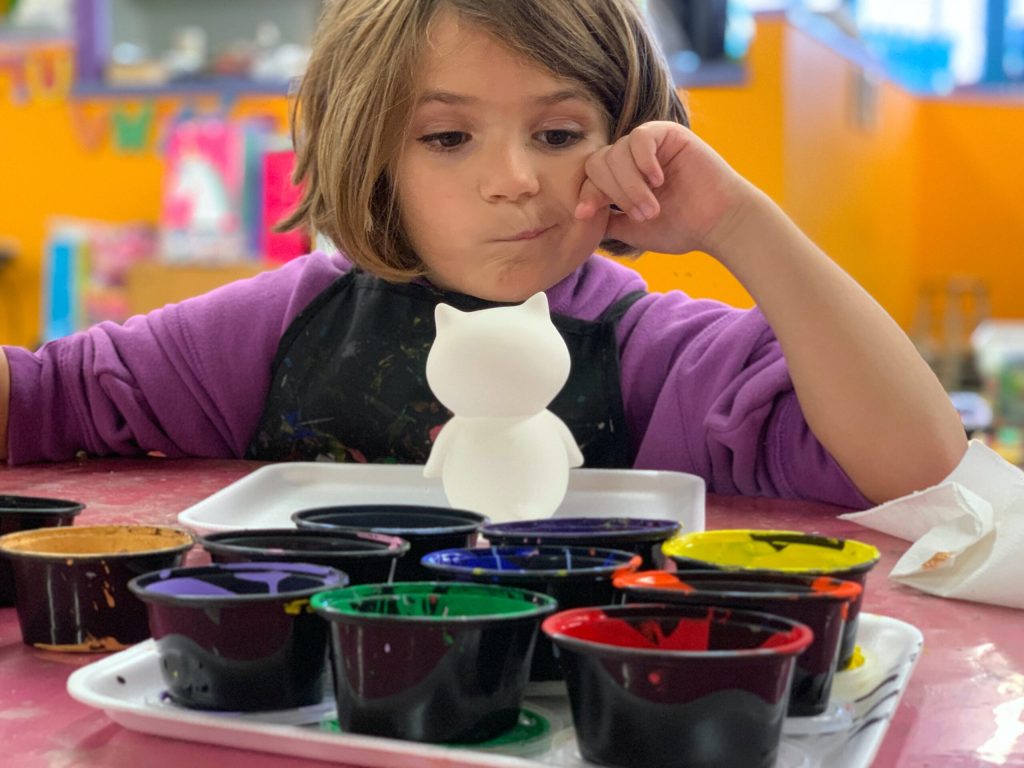The Rising Popularity of Clay Play in Mental Health Therapy
In recent years, an unexpected but profoundly effective tool has emerged within therapeutic settings: clay play. Therapists across disciplines—from art therapy to occupational therapy—are increasingly recommending clay-based tactile activities as a natural, hands-on approach to alleviating anxiety. Unlike traditional talk therapy or medication, clay play offers a direct sensory experience that helps individuals reconnect with their bodies and emotions in a nonverbal, creative way. This growing interest is supported by a burgeoning body of research demonstrating how tactile engagement with different types of clay can modulate stress responses, ground the nervous system, and facilitate emotional expression. But what exactly makes clay so effective in anxiety relief, and how are therapists integrating it into treatment plans?
Tactile Therapy and the Science Behind Clay’s Soothing Effects
Tactile therapy leverages the sense of touch as a primary pathway to influence the brain and body. Clay, as a malleable and richly textured medium, provides a unique tactile stimulus that engages multiple sensory receptors in the skin, muscles, and joints. When hands manipulate clay, it triggers somatosensory pathways that can promote relaxation by activating the parasympathetic nervous system—the body’s “rest and digest” mode. This effect helps counteract the overactive fight-or-flight response often seen in anxiety disorders.
Research has shown that different types of clay—air-dry, polymer, earthenware, or modeling clays—offer distinct tactile experiences. For example, natural earthen clays tend to have a cooling, moist texture that can be grounding and calming, while polymer clays are more elastic and responsive, encouraging playful manipulation. The choice of clay type allows therapists to tailor sessions to individual client needs and sensory preferences.
Studies on tactile interventions consistently find reduced cortisol levels (the stress hormone) and lowered heart rate following engagement with clay. These physiological changes support the subjective feelings of calm and centeredness reported by participants. Furthermore, the repetitive motions involved in shaping clay mimic mindfulness practices by fostering focused attention and disrupting anxious rumination.
Step-by-Step Therapeutic Sculpting Exercises
Therapists guide clients through structured clay sculpting exercises designed to harness the medium’s calming potential and promote emotional release. Below is a general blueprint of therapeutic clay play used in anxiety relief sessions:
- Warm-up and Grounding: Begin by inviting clients to simply knead and roll the clay between their hands, noticing its texture, temperature, and resistance. This initial warm-up serves to shift attention from anxious thoughts to present-moment sensory awareness.
- Forming Basic Shapes: Next, clients are encouraged to create simple forms—balls, coils, or flat discs. This encourages motor coordination and introduces a nonjudgmental creative process. Therapists might prompt, “What shape feels right to make right now?”
- Emotional Expression: Clients then move on to sculpt shapes or figures representing emotions, thoughts, or bodily sensations related to their anxiety. This process externalizes internal experiences, making them tangible and easier to explore safely.
- Transformative Play: Clients experiment with altering their sculptures—flattening, reshaping, or combining forms—symbolizing the potential for change and emotional flexibility.
- Reflection and Integration: After sculpting, therapists facilitate verbal or journaling reflection on the feelings evoked during the activity, connecting tactile experience to emotional insight.
These exercises can be adapted for individual therapy, group workshops, or even self-guided home practice. Over time, regular clay play fosters increased emotional regulation, reduces muscle tension, and enhances a sense of mastery and control.
Combining Clay Play with Breathwork for Enhanced Anxiety Relief
To amplify clay’s calming effects, therapists often integrate breathwork techniques simultaneously with tactile play. Breath control—particularly slow, deep diaphragmatic breathing—activates the parasympathetic nervous system and counters anxiety’s hyperarousal.
During clay play, therapists might instruct clients to synchronize their breath with their hand movements: inhaling while pressing or rolling the clay and exhaling while releasing or flattening. This rhythmic coordination promotes deeper mindfulness, anchors attention, and reinforces the mind-body connection.
Specific breathwork methods combined with clay play include:
- Box Breathing: Inhale for four counts, hold for four, exhale for four, hold for four while shaping the clay.
- Extended Exhalations: Longer exhalations relative to inhalations, paired with gentle clay manipulation to enhance relaxation.
- Alternate Nostril Breathing: Used prior to clay sculpting to balance nervous system activity.
Research suggests that combining multisensory tactile stimuli with breath-focused mindfulness produces synergistic effects on anxiety reduction greater than either practice alone. This integrated approach is particularly beneficial for clients who struggle with verbal expression or traditional mindfulness alone.
Broader Therapeutic Benefits and Clinical Applications
Beyond immediate anxiety relief, clay play facilitates emotional resilience by promoting creativity, self-efficacy, and somatic awareness. It offers a non-threatening entry point for trauma survivors or those resistant to talk therapy, as emotions can be expressed through form and texture rather than words.
In pediatric therapy, clay play is widely used to support fine motor development and emotional regulation simultaneously. In adult populations, it has been shown to improve sleep quality, reduce depressive symptoms, and enhance mindfulness skills.
Occupational therapists use clay play to help clients regain sensory integration and motor skills after injury or illness, demonstrating its versatile role in holistic mental health care.

Safety and Practical Considerations
While clay play is generally safe, therapists consider client allergies, sensitivities, and preferences when selecting materials. Non-toxic, hypoallergenic clays are preferred, and hygiene protocols are maintained during shared sessions.
Therapists also prepare clients for potential emotional release during sessions, as tactile stimulation can unearth buried feelings. Creating a safe, supportive environment and providing aftercare resources are essential components of effective therapy.
How to Incorporate Clay Play into Your Daily Routine
For those interested in using clay play as a self-help anxiety tool, simple practices can be implemented at home. Investing in a small kit of natural or polymer clays and dedicating 10-20 minutes daily to mindful sculpting can help ground anxious energy and foster calm.
Pairing clay manipulation with deep breathing, guided meditations, or calming music enhances benefits. Keeping a journal to track feelings before and after sessions can increase self-awareness and emotional insight.
Workshops and community classes led by art therapists or mindfulness coaches also offer supportive spaces to explore clay play’s therapeutic potential.
The Future of Clay Play in Anxiety Treatment
As evidence accumulates, clay play is likely to become a staple complementary therapy in mental health treatment plans. Researchers are exploring digital clay simulators and virtual reality environments to make tactile therapy accessible remotely.
Integration with neurofeedback and biometric monitoring may soon allow therapists to tailor clay activities dynamically based on real-time anxiety markers. This personalized approach could revolutionize how tactile therapies support emotional wellbeing.
In conclusion, clay play’s tactile richness, combined with breathwork and mindful creativity, offers a powerful antidote to anxiety’s grip. Its resurgence in therapeutic settings reflects a growing appreciation for body-centered, experiential healing modalities that reconnect us to our senses, emotions, and inherent capacity for calm.







































